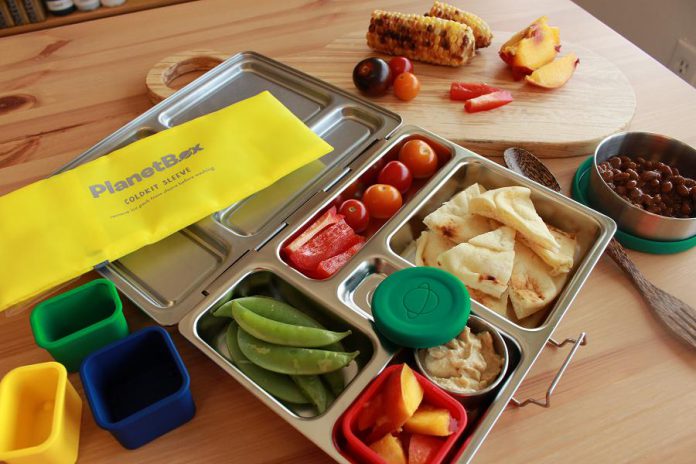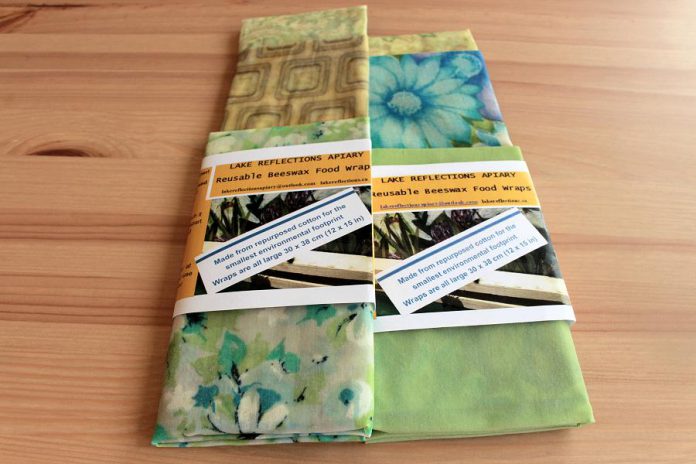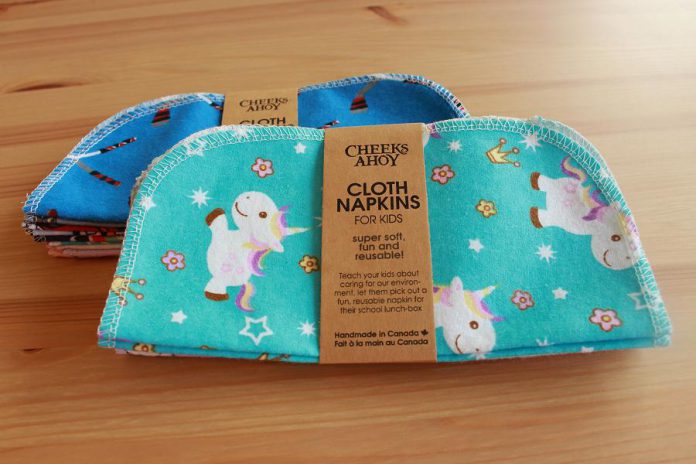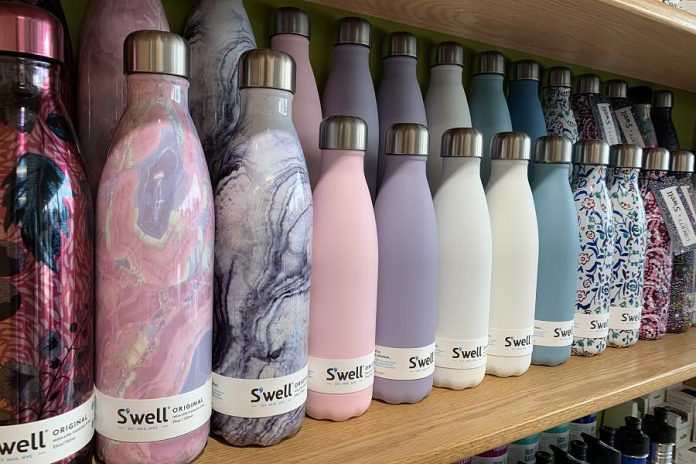
Last week, we heard the news that kids will be going back to school in person this fall. As was the case last year, kids may have additional anxieties after being away from in-school learning environments since April.
As I ready myself for this next transition, I’m grateful that the packed lunch not only gives my kid nutritious food, but also delivers a bit of comfort from home during the school day. Packed lunches are also an opportunity for me and my family to make thoughtful choices about what waste we may be creating and sending to landfill.
Here are my top 10 tips to help make our lunches litterless.
1. Don’t buy pre-packaged food and beverages
Reducing waste inside the home requires us to change our habits outside of the home.
When we are grocery shopping, instead of reaching for a package of cheese strings, consider buying a brick of cheese and cutting it creatively. Rather than buying pre-packaged produce, opt for the unpackaged options and bring your own produce bags.
Consistently choosing lunch snacks that have limited or no packaging is a great way to reduce waste. As with many sustainable choices, reducing the packaging that comes into your home not only benefits the planet but also your health and the health of your kids.
The American Academy of Pediatrics issued a report in 2018 acknowledging the growing body of evidence that suggests chemicals added to food directly or indirectly via packaging, adhesives, etc. could have long-term developmental repercussions in children.
2. Involve your child in the lunch planning and packing process
This tip is simple, but it challenges us as parents to let our kids make choices instead of choosing for them.
Having choices is empowering, and our kids learn a lot when they are empowered in the kitchen.
Depending on their age, you can split the workload while encouraging independence and ownership. When children have a voice and can choose their own lunch options, they are more likely to eat it.

3. Avoid juice boxes
Swap out sugary juice boxes with a single stainless-steel water bottle that can be filled (and refilled) with good old H2O right from the tap.
Getting into the habit of drinking water at lunch and throughout the day is good for your child’s health and your pocketbook.
Though juice boxes are recyclable, they are often not rinsed properly before being put into the bin. This leads to contamination of other recyclables and can result in the whole lot being sent to landfill. Also, we need not explain why the single-use plastic straws that come with juice boxes should be avoided.
In speaking with teachers and education assistants, I have learned that juice boxes are the number one unfinished lunch item, and more often than not they end up half-full in the garbage.
4. Use stainless-steel containers
Choose reusable stainless-steel containers, thermoses, and water bottles for packing your child’s lunch.
Stainless steel is relatively easy to clean using hot water and soap. A bottle brush can help you clean inside thermoses and water bottles.
Stainless steel is also durable, light, and free of BPA and other harmful toxins.
5. Practice making lunches with your child
Practice your lunch routine before school starts by packing a demo lunch and going on a picnic.
This gives you the opportunity to see your child’s lunch gear in action. Check to see how easily your young ones can open and close the containers by themselves.
This way you can be sure the food you pack is accessible. This also ensures your child will not have to ask for help from school staff.
6. Use fabric snack bags
Reach for reusable fabric snack bags rather than plastic ones.
Colourful or patterned reusable bags offer the element of surprise.
They are easy to wipe out at the end of the day and can be tossed in the washing machine for a deep clean.

7. Avoid plastic wrap
Swap out that plastic cling wrap!
This single-use plastic product can easily be replaced with beeswax food wraps.
These sustainable alternatives are reusable, washable with cold water, and compostable after approximately one year of use.
8. Consider making your own granola bars
Replace pre-packed granola bars with litter-less alternatives.
Those pre-packaged granola bars may seem like a convenient snack option, but the foil wrappers are not recyclable and only end up in the landfill.
One alternative is baking your own granola bars at home in large batches, which you can freeze and thaw as needed. This offers an opportunity for your child to be involved in the baking process, not to mention you can customize your creation and add all your favourite healthy ingredients.
9. Do some research
Consult with teachers, fellow parents, and online resources for lunch-packing inspiration.
A quick Google search will bring up hundreds of blog posts and articles with parents documenting their school lunch ideas. One of my favourite ideas is fresh fruit or vegetable skewers.
Try visiting the website of the brand of your child’s lunchbox. For example, the Planet Box website provides specific recipes that help you make the most of the compartments provided in their lunch boxes.
10. Recycle any packaging if you can
It’s not always possible to avoid packaging, but some of it can be recycled.
If you are looking to check up on the recyclability of specific items within the City of Peterborough, there is an excellent online tool on the City of Peterborough’s website called What Goes Where.
The tool allows you to search for a particular item or material and receive specific instruction about how and where it’s disposed.

The GreenUP Store offers a variety of tools to help you create your child’s litter-less lunch kit. For more information, visit us at 378 Aylmer Street in downtown Peterborough, check out our online store at shop.greenup.on.ca, or give us a call at 705-745-3238 ext. 222, or email kristen.larocque@greenup.on.ca with your zero-waste lunch questions.


























